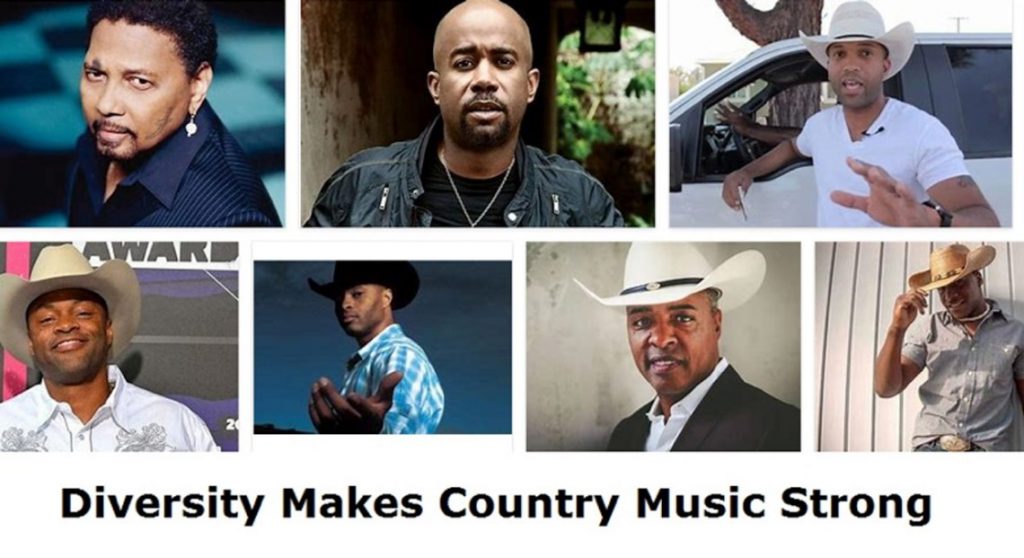Diversity, a Strength for Country Music
When I write these pieces for Radio Country Hits, I might sometimes use a first-person pronoun or two, but rarely do I speak of myself, from my own point of view. But in an article about diversity in country music, specifically black people in country music, I have to say that some of my first memories growing up as a kid were listening to the record player with my father and hearing Charlie Pride’s “Family Bible” and “Mansion on the Hill,” and the Neville Brother’s absolute chill-inducing classic “Tell it Like it Is.” These were played right alongside Waylon Jennings and George Jones, and I only heard these people, never saw them as a kid. To me, they were music, not a race, not a color, not any type of anything – just great singers singing great music.
Now that I’m older, I can throw Charlie Pride or Aaron Neville up on YouTube and see them, and feel them. I can feel something different in their voice, the words they say. It comes through, now that I’m more aware of the sort of diverse backgrounds many people had in America. As a little five-year-old piss-pants just wanting to be cool like daddy, it never crossed my mind. As man now with four decades of living on this little blue rock, it comes through. And it’s a great thing that it does. Country music would not be the same without the diversity of life experiences from its artists.
Maybe you want to be a hit country songwriter and produce some great music that’s really diverse but, most of all, just really epic music. Maybe you’ve entertained taking songwriting classes, joining up with songwriter forums, and the whole nine. Though here’s something I’ll give away for free, without you having to join up with a class or take a single lesson: A song is oftentimes only as good as the truth you’re telling about your life.
In an evolutionary context, country music is a species of classic Americana, the blues, and the western music that was pouring out of people’s hearts hundreds of years ago. More than anything, hit country music was about people’s angst, pain, love and wonderment told through their lived experiences. And we can all relate to one another’s experiences in our own way, even if we didn’t live that exact life.
Look to hip-hop music as a prime example of this. Around four decades ago, inner-city urban youth, most of whom were young black males, started doing something amazing with what amounted to, at the time, spoken-word poetry over top of beats. They put their lived experiences into words, into music, and look how well it took off. It didn’t take off because only people in the similar situations buy the music. People from all over America, all across the globe, buy that music. Is it because they can live vicariously through those experiences? No; of course not. You’ve never been chased by a killer alien clown, but may still enjoy reading Stephen King’s “It.” And that’s what it’s about: The stories. You don’t have to had lived through a story to appreciate the story. Millions of people appreciate the stories coming out of country and out of hip-hop.
As songwriters, that’s what we need to do: Bring people in with good storytelling.
Attracting More Life Experiences to the Genre
The more diversity in lived experiences we can get into country music, the wider the range of stories we have to enjoy. It never matters what someone’s race is, what their background is, what their socioeconomic standing is. People from all walks of life have great stories to tell. If you want to be a country hit radio songwriter, then you need to tell a story. You can be a white songwriter in country music and diversify your writing portfolio a bit by venturing into hip-hop, or vice versa if you’re a black hip-hop artist. Look at all the famous collaborations and great songs over the years.
As a songwriter in country music, you can help attract a broader range of diverse stories in country music by actually writing a broader range of stories and reaching across the aisle to change up your style every once in a while. No matter what type of music it is, we all just want a good story.
Doing so makes all people feel as if their voice matters in the genre, which will attract many more songwriters willing to tell their stories.


